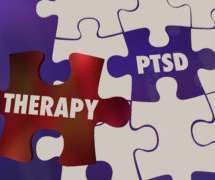How do we know when posttraumatic stress disorder is getting better?
Society of Clinical Psychology
JULY 13, 2020
Posttraumatic stress disorder (PTSD) causes a great deal of mental and physical distress, and can significantly reduce a person’s quality of life. Defining these constructs will also help to facilitate the development of clinical algorithms to guide decision-making and treatment planning for those people with PTSD. Author Bios.












Let's personalize your content